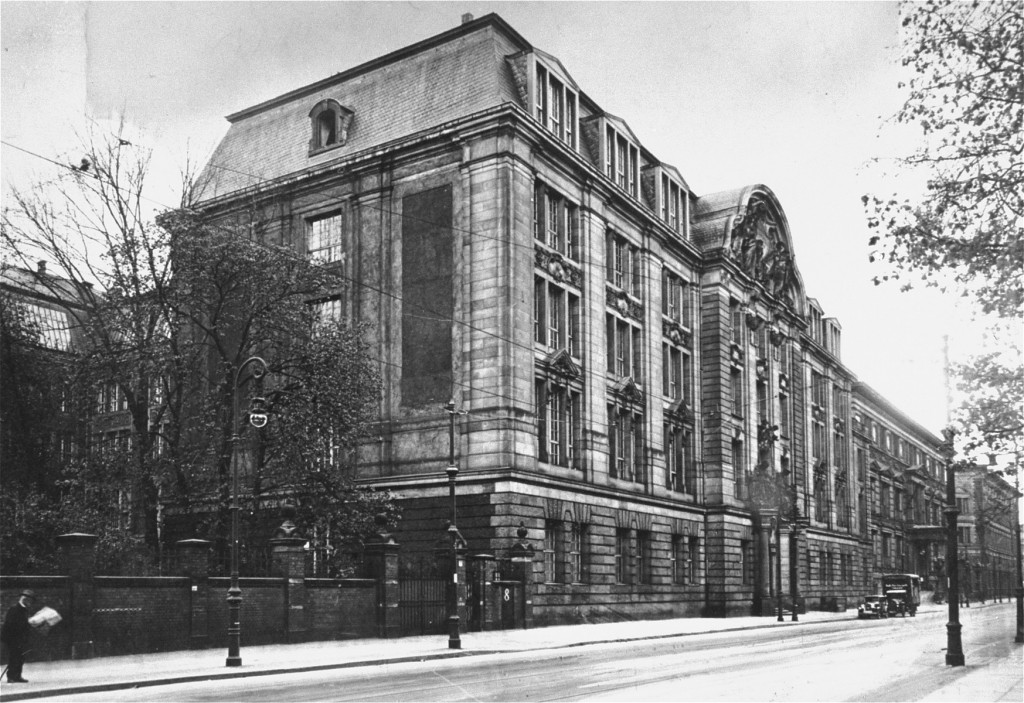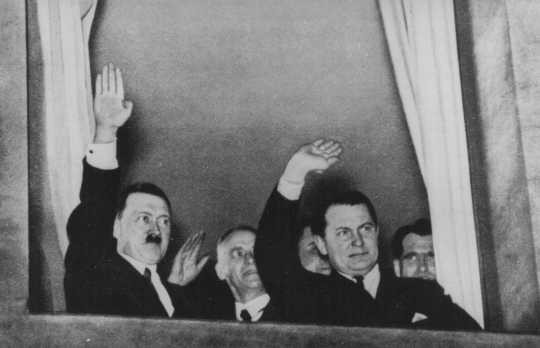
1934: Key Dates
January 24
The German government bans Jews from membership in the German Labor Front. Because membership in the German Labor Front is mandatory for wage laborers and salaried employees, this decree effectively deprives Jews of the opportunity to find positions in the private sector and denies to those already employed the benefits available to non-Jews.

June 30-July 2
In the “Röhm Affair,” also known as “Night of the Long Knives,” Hitler orders the purge of the top leadership of the Nazi Party paramilitary formation, the SA (Sturmabteilungen; Assault Detachments). Pressured by German army commanders, whose support Adolf Hitler needed to become President of Germany upon Paul von Hindenburg's impending death, Hitler used the SS to murder SA Chief of Staff Ernst Röhm and his top commanders on June 30–July 2. The SS also murders several present and past conservative critics of the Nazi regime including Hitler's predecessor as Chancellor, General Kurt von Schleicher, and the former Bavarian Minister-President, Gustav von Kahr. At Hitler's request, the German parliament (Reichstag) declares the killings legal after the fact, based on the false accusation that Röhm and his commanders had planned to overthrow the government.
July 20
As reward for its role in the Röhm purge of June 30–July 2, Hitler decrees the SS, under Reichsführer SS (SS chief) Heinrich Himmler, to be an independent formation of the Nazi Party, directly subordinate only to Hitler himself as Führer (leader). The SS had formerly been subordinate to the SA..
August 2
German President von Hindenburg dies. With the support of the German armed forces, Hitler becomes President of Germany.
August 19
Hitler abolishes the office of President and declares himself Führer of the German Reich and People, in addition to his position as Chancellor. In this capacity as Führer, Hitler's decisions are not bound by the laws of the state. Hitler now becomes the absolute dictator of Germany; there are no further legal or constitutional limits to his authority.
October 7
In standardized letters sent to the government, congregations of Jehovah's Witnesses all over Germany declare political neutrality, while rejecting government restrictions on the practice of their religion.
November-December
SS chief Himmler consolidates control over and de facto unifies the German state political police forces into the Gestapo office in Berlin under the authority of his deputy, Reinhard Heydrich.
December 10, 1934
SS chief Himmler creates the Inspectorate of Concentration Camps under the leadership of SS General Theodor Eicke. This move formalizes the SS takeover and centralization of the concentration camp system that had taken place in July 1934.
Critical Thinking Questions
- Learn about warning signs for mass atrocity and genocide. What events during 1934 might be examples?
- Why do regimes take sudden steps to attack or eliminate opposition groups? Why did the Nazis resort to this level of violence during the “Rohm affair”?

